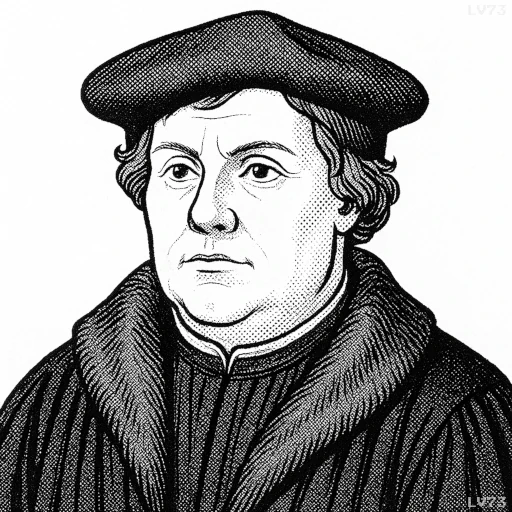“Every man must do two things alone; he must do his own believing and his own dying.”

- November 10, 1483 – February 18, 1546
- Born in the Holy Roman Empire (Germany)
- Reformer, theologian
table of contents
Quote
“Every man must do two things alone; he must do his own believing and his own dying.”
Explanation
In this quote, Martin Luther highlights two deeply personal and individual experiences: faith and death. He asserts that both belief and dying are inherently solitary processes, meaning that no one else can believe for you, and no one can face death on your behalf. Belief is a personal journey, where an individual must come to terms with their own faith, without relying on others to guide or carry them. Similarly, dying is an inevitable and individual experience that each person must face alone, regardless of the support they might have from loved ones. Luther suggests that these moments are crucial aspects of the human experience that demand personal engagement and responsibility.
Luther’s emphasis on personal faith was a key component of his theological reforms during the Protestant Reformation. He rejected the idea that salvation could be mediated through the Church’s rituals or the intercession of others. Instead, Luther championed the idea that each person must come to God directly, through personal faith. This is where the idea of “believing alone” fits into his larger doctrine of sola fide—that salvation comes through faith alone, not through external actions or institutional intermediaries. Similarly, his reflections on dying alone reflect the existential reality that death is an individual experience, even though it may be shared with others in terms of loss.
In modern life, Luther’s quote serves as a reminder of the individual nature of certain experiences. In a society where we often seek external validation, guidance, or support, it underscores the importance of taking personal responsibility for one’s faith journey and facing mortality with acceptance and courage. It also highlights the uniqueness of every individual’s spiritual journey and eventual death, urging people to reflect on their own beliefs and the legacy they wish to leave behind.
Would you like to share your impressions or related stories about this quote in the comments section?


